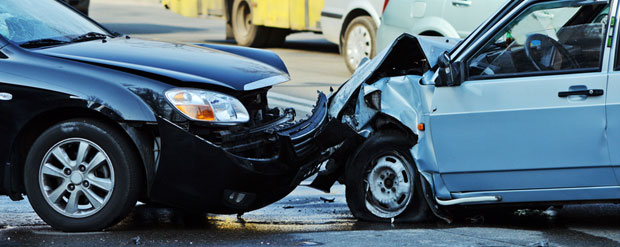Reports You Need To File After A Car Accident In Vermont

Reports You Need To File After A Car Accident In Vermont
Few experiences in life are more sudden and terrifying than a car accident. In a split second, your life and health can be shattered by the careless action of another driver and, due to shock, you may not even realize the extent of your injuries until much later. That’s why it’s important to know exactly what to do after being injured in an auto accident that is not your fault.
A few weeks ago we discussed the medical aspects of coping with your accident. In this article we will go over the various reports you will need to file and other paperwork that comes with your case.
First, you want to make sure you are out of harm’s way, of course. Once everyone is safe, make sure you call the police. Without a police investigation, your accident claim could be difficult to document. At the very least make sure to get the other driver’s license plate number, personal identifying information and their insurance information, which they are required by law to provide to you within five days of a car accident.
Vermont Law Regarding Auto Accidents
Furthermore, under Vermont law, a driver involved in an accident that causes injury or $3,000 or more in combined property damage must file a Report of a Motor Vehicle Crash with the Vermont Department of Motor Vehicles within three days of the accident.
Since this is a public document that will surely be used by the other driver’s insurer and lawyers, you should follow the same rules, making sure to accurately describe the incident in complete detail, and to thoroughly document your injuries as well as those of anyone riding in your vehicle with you.
Police Reports
Serious accidents will also result in a Police Report of Motor Vehicle Accident, including information about the identities of the drivers and passengers, any injuries, property damage, a narrative description of the circumstances of the accident and an assignment of fault. Sometimes charges are recommended. As with the driver’s report, the other side’s insurer will obtain this document and make a determination of fault on that basis. It’s important to know that, in court, the investigating officer cannot testify as to his or her conclusions about fault. The report is typically inadmissible, although the officer may testify as to its contents without expressing an opinion on liability.
Your Own Auto Insurer
You should never speak in detail to an adverse insurance company about your accident beyond politely providing the basic details needed to open a claim.
Your own insurance company, though, will ask you to provide a report on the accident, usually by phone.
Since most insurance policies include some form of “medical payments” coverage, which pays for treatment arguably related to the accident for a specific period of time, you will need to make such a report to your own carrier. “Med pay” coverage usually lasts for only one year after the accident. Failure to report your injury and obtain the recommended treatment within the “med pay” time limit often results in the denial of this critical benefit.
If your insurer does provide “med pay” to you, they will have a lien on your recovery, which means you must pay them back out of the money you get from the other driver’s carrier. The amount you have to pay back is usually reduced by one-third, an amount equal to the typical contingent attorney’s fee agreement. This reduction is due to heavy lifting you and your attorney had to do to recover that money.
Your Medical Providers
Your doctors will also ask you to fill out forms when you seek treatment for your injuries. These forms help them bill the appropriate party for your treatment, whether it is you own “med pay” carrier, the other driver’s insurer, or your personal health insurance plan.
Make sure to fill these forms out carefully and accurately in order to ensure that the treatment you receive is attributed to the accident, so that your medical providers send the bills to the proper recipient without delay.
Your Health Insurer
If you are fortunate enough to have health insurance, either privately or through Medicaid or Medicare, you need to alert your carrier that you were injured through the fault of someone else. This will enable them to obtain reimbursement for the sums spent on your care if you make a legal recovery from another party, which is a typical provision in most health insurance policies.
As with “med pay” coverage, the typical health insurance policy will require you to repay your carrier out of any money you recover. Again, you are usually entitled to a discount of one-third of the amount they paid on your behalf.
Importance Of a Personal Injury Attorney
Skilled personal injury attorneys are often able to make better deals on your behalf by negotiating further discounts, usually based on factors such as the degree of difficulty of a recovery absent settlement, need and hardship, or in cases where you are not made whole despite the availability of insurance. You should know, as well, that failing to pay a lien could expose you to legal consequences. When it comes to dealing with liens – including the availability of reductions and the consequences of failing to address them properly – is a good reason to hire a personal injury lawyer.
When it comes to auto accidents and personal injuries, documentation is everything. By understanding the process, you will be better prepared to deal with the stressful aftermath of a serious accident. An experienced accident attorney will help you navigate these steps and get you back on the road to a speedy recovery.

